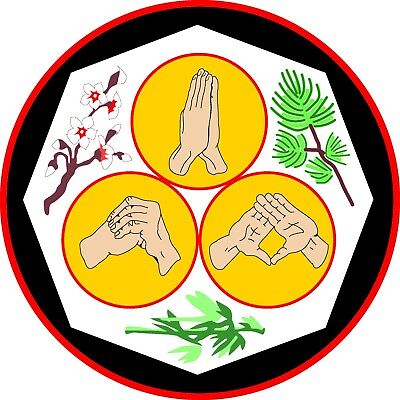- You are here:
- Home »
- Blog »
- Kosho Ryu »
- A Disciplined Mind. How to develop Critical Thinking
A Disciplined Mind. How to develop Critical Thinking

A Disciplined Mind. In the quest for personal and professional excellence, the significance of cultivating a disciplined mind cannot be overstated. Discipline, often regarded as the bedrock of success and fulfillment, offers a multitude of benefits that extend far beyond the confines of mere routine and self-control.
It is a transformative force that enhances focus, efficiency, resilience, and decision-making skills, among others.
Here, we delve into the myriad ways a disciplined mind can elevate various aspects of one’s life, highlighting its integral role in fostering critical thinking—a key component of rational, independent judgment.
Key Benefits of a Disciplined Mind
1. Improved Focus and Efficiency
The essence of discipline lies in its ability to sharpen focus and minimize distractions, thus facilitating greater efficiency in task completion and goal achievement. This singular focus is the foundation upon which productivity is built.
2. Enhanced Decision-Making Skills
A disciplined mind encourages a thoughtful, analytical approach to decisions, allowing for careful consideration of options and the avoidance of impulsivity. This clarity of thought is crucial for making informed choices.
3. Increased Resilience and Effective Stress Management
Discipline is synonymous with resilience, providing the strength to withstand challenges and setbacks. It also fosters effective stress management by promoting structured problem-solving and routine, thereby reducing unpredictability and anxiety.
4. Better Time Management
Effective prioritization and time allocation are hallmarks of discipline, leading to enhanced productivity and the ability to meet deadlines without succumbing to the pressures of procrastination.
5. Achievement of Long-Term Goals
The path to achieving long-term objectives is paved with discipline, requiring consistent effort and the perseverance to continue even when immediate rewards seem distant.
6. Enhanced Self-Control and Emotional Regulation
Discipline aids in mastering self-control and regulating emotions, thereby improving interpersonal relationships, reducing conflict, and enhancing overall well-being.
7. Higher Quality of Work
A disciplined approach to work translates into meticulousness and a commitment to continuous improvement, resulting in superior outcomes and elevated expertise.
8. Improved Health Habits
Discipline extends its benefits to personal health, promoting regular exercise, healthy eating, and adequate sleep, all of which contribute to improved physical and mental health.
9. Financial Stability
Financial discipline is key to effective money management, enabling savings, wise investments, and ultimately, financial security.
10. Increased Satisfaction and Fulfillment
Discipline fuels the pursuit and achievement of goals, leading to a deeper sense of satisfaction and fulfillment in life, imbuing one’s existence with direction and purpose.
The Synergy between Discipline and Critical Thinking
The relationship between a disciplined mind and critical thinking is profound and mutually reinforcing. Critical thinking, the art of clear and rational thought, is significantly enhanced by the traits fostered by discipline. Here are some ways this synergy manifests:
1. Enhanced Focus and Clarity
Discipline improves the ability to maintain focus, which is essential for engaging deeply with subjects and evaluating evidence without distraction, a core aspect of critical thinking.
2. Structured Thinking and Analysis
A disciplined approach promotes a systematic method of information analysis and problem-solving, fundamental for assessing arguments and evidence critically.
3. Improved Information Management
Efficient organization and management of information are critical for forming well-supported conclusions, a task made easier by discipline.
4. Persistence in Problem-Solving
The perseverance encouraged by discipline is invaluable for navigating complex issues and developing nuanced understandings, a cornerstone of critical thinking.
5. Openness to New Perspectives
Discipline aids in managing biases and emotional reactions, fostering openness to alternative viewpoints, a vital aspect of critical thinking.
6. Effective Decision-Making
Both discipline and critical thinking contribute to reasoned and judicious decision-making, leading to more thoughtful outcomes.
7. Development of Analytical Skills
The practice of critical thinking skills bolsters analytical abilities, a process enhanced by disciplined learning and practice.
8. Enhanced Emotional Intelligence
The emotional regulation associated with discipline aids in objective analysis, preventing emotions from clouding judgment.
9. Commitment to Continuous Improvement
A disciplined mindset drives a commitment to self-improvement and lifelong learning, essential for the dynamic process of critical thinking.
10. Ethical Consideration and Reflection
Discipline involves mindful ethical consideration, integral to critical thinking, which emphasizes fairness and justice in reasoning.
In essence, a disciplined mind not only paves the way for the development and application of critical thinking skills but also profoundly enriches one’s personal and professional life.
This synergy between discipline and critical thinking fosters informed, reasoned, and ethical decisions, underpinning a journey towards comprehensive growth and fulfillment. Cultivating a disciplined mind, therefore, is not merely an endeavor worth pursuing; it is essential for anyone aiming to lead a meaningful, productive, and balanced life.
The relationship between martial arts and the development of a disciplined mind is both profound and symbiotic, reflecting a journey that transcends physical prowess to encompass mental and emotional growth. Martial arts, in their various forms, are not merely systems of combat or self-defense; they are, at their core, disciplines that foster a deep sense of mental fortitude, self-awareness, and inner peace. This connection between martial arts and discipline illuminates how the pursuit of martial excellence can lead to the cultivation of a disciplined mind, enhancing one’s life in myriad ways.
The Foundation of Discipline in Martial Arts
Martial arts training is grounded in the principle of disciplined practice. From the meticulous repetition of forms (katas) to the rigorous physical conditioning and the strategic sparring sessions, each aspect of martial arts training is designed to challenge practitioners both physically and mentally. This relentless pursuit of mastery demands a high degree of commitment, patience, and self-discipline, as progress is often gradual and punctuated by moments of both breakthrough and setback.
Mental Fortitude and Focus
One of the most immediate ways martial arts cultivate a disciplined mind is through the development of mental fortitude and focus. Martial artists learn to channel their attention fully towards their techniques, strategies, and reactions during training and sparring. This heightened state of focus not only improves their martial skills but also translates into a greater ability to concentrate and remain undistracted in other areas of life. The discipline required to maintain focus under pressure in martial arts helps individuals develop the resilience to handle stress and adversity with grace.
Emotional Regulation and Self-Control
Martial arts teach practitioners to remain calm and composed, both in and out of the dojo. The controlled environment of martial training encourages individuals to manage their emotions, especially in high-pressure or confrontational situations. This emotional regulation is a direct result of the disciplined mind developed through consistent practice, where one learns to control impulses, manage stress, and approach challenges with a clear, calm mind. Such self-control is invaluable in navigating the complexities of personal and professional relationships.
Persistence and Resilience
The path of martial arts is replete with challenges that test one’s limits and demand perseverance. Through disciplined training, martial artists learn the value of persistence — the understanding that progress and mastery are the results of continuous effort and dedication, despite obstacles. This aspect of discipline fosters resilience, teaching individuals to view setbacks as opportunities for growth and learning rather than as failures.
Ethical and Philosophical Growth
Beyond the physical and mental aspects, martial arts are deeply rooted in ethical and philosophical teachings that emphasize respect, humility, integrity, and the pursuit of peace. The disciplined mind that emerges from martial arts training is one that values these principles, applying them not just within the martial context but in all facets of life. This ethical growth fosters a sense of responsibility and a desire to contribute positively to one’s community.
Lifelong Learning and Self-Improvement
Finally, martial arts embody the principle of Kaizen, or continuous improvement, instilling in practitioners the discipline to seek constant growth and learning. This mindset encourages an ongoing examination of one’s abilities, limitations, and potential, driving individuals to strive for excellence not only in their martial practice but in their personal and professional endeavors as well.
In conculsion
In conclusion, the relationship between martial arts and a disciplined mind is characterized by a transformative process that extends well beyond the confines of physical training. Martial arts offer a holistic approach to discipline, weaving together the physical, mental, and ethical strands of human experience into a cohesive practice that enriches one’s life. Through the disciplined pursuit of martial arts, individuals can develop the mental fortitude, focus, emotional regulation, resilience, ethical grounding, and commitment to lifelong learning that define a truly disciplined mind.
Questions
Do you have any questions? Please use the form below to ask!
Thank you for visiting Kosho Ryu International and reading this article. All learning can be viewed as Kosho Ryu. If you would like my FREE eBook on the discipled mind please follow this LINK.
Yours in the arts,
Grand Master Art Mason

About the Author Grand Master Art Mason
Grand Master Art Mason is a former Dojo owner, author and entrepreneur living in his chosen country of Romania with his son and Huskies.
Session expired
Please log in again. The login page will open in a new tab. After logging in you can close it and return to this page.
